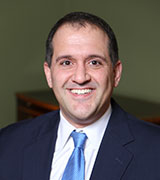- FOKION AVGERINOS – DR. IKE: Athletic Director, Youth Mentor, and Healer
- American Hellenic Institute’s Golden Jubilee Celebration
- Leadership 100 Concludes 33rd Annual Conference in Naples, Florida
- Louie Psihoyos latest doc-series shocks the medical community The Oscar–winning director talks to NEO
- Meet Sam Vartholomeos: Greek-American actor
Reimagining Relations with the Diaspora

by Endy Zemenides
The upcoming elections in Greece will for the first time allow the country’s diaspora to vote from Greek consulates abroad. When adopted, this move was heralded as a major step forward in the relations between the Hellenic Republic and Hellenes abroad. Two rationales for the move stood out: first, it was a way to keep those who left Greece due to last decade’s economic crisis engaged in the country’s political and civic life and make their return to Greece more realistic; second, it was a way to keep the older and more traditional part of the diaspora tied to Greek public life.
By all accounts, the diaspora vote from the United States is on track for lackluster participation. That in and of itself is not cause for concern. Voters should be engaged and at least trying to be informed if they are going to be taking votes that not they – but relatives and compatriots in Greece – must live with the consequences of.
What should be of greater concern is that once again another initiative to bring Greece closer to its diaspora is not delivering the desired result. Other grand ideas – from SAE (the Council on Hellenes Abroad) to issuing of Greek citizenship to members of the diaspora – have similarly come up short. All these programs have not only failed to meet their mark with the diaspora as we presently know it, but they don’t even begin to address Greece’s relationship with the diaspora of the future.
Six years ago in the pages of this magazine, I asserted “For anyone who has closely observed or participated in the Greek-American community, it is clear that there is no singular manner in which to define the diaspora here in the United States. This makes it impossible – at this point – to adopt a one-size-fits-all approach when it comes to Greece’s diaspora policy.”
This statement rings louder today than it did even six years ago, but the constant search for a “magic bullet” when it comes to diaspora affairs continues. A few of the misfired bullets have already been detailed. Even within the diaspora there are overaggressive attempts to establish a one-size-fits-all approach – exhibit A being the efforts to establish a new charter for the Greek Orthodox Archdiocese of America that would centralize authority.
No magic bullet will be suggested here, but there should be greater urgency when it comes to pouring new foundations on which Greece and the next generation of its diaspora can stand on together. The present approach certainly does not meet the “eye test”. And by “eye test” I am suggesting that a quick look at the typical room diaspora officials turn to in New York or Chicago or Florida suggests that the Greek institutions responsible for diaspora relations will have fewer and fewer people that they know and can turn to in the next decade.
Greece can afford to let the citizenship and voting initiatives run their course, but it has to simultaneously mind the future. Fortunately, the wheel does not have to be completely reinvented. There are success stories to build off of, untapped resources to be optimized:
- Communications. Greece has to devote more resources into mass communications with its diaspora. Greece’s correspondents in Washington and New York do not have the resources that many of their foreign counterparts (including Turkey’s correspondents) have. Greek-American publications – like NEO – have to work overtime to keep operations going as is.
A modest investment will have huge returns. It will allow for more digital content, given that this is where future generations are going to consume information such an investment is a must.
This does not have to be solely the responsibility of the state. Antenna Group’s partnership with Vice Media could result in a product that targets Americans who speak Greek as a second language – flipping the modus operandi for television products broadcast into Greek American households presently.
- Foreign study. The Ministry of Education is making a big push to attract more American students – and pending changes in Greek law – more American universities to Greece. There are already well-established foreign study programs, but very few Greek American students participate in them.
Increasing the number of Greek Americans studying in Greece could have a transformational effect for the diaspora. Ensuring that next generation Greek Americans understand present day Greece beyond the beaches and villages of their grandparents will pay off immediately. Given that foreign study is increasingly becoming a typical university experience, this will require minimal investment. - Activate Influencers. Inviting Greek-Americans to support, travel to and invest in Greece should be the floor. As this particular diaspora community increases its reach and influence, Greece should become acquainted with the rolodexes of its partners in the diaspora. Greek American immigrants who became successful entrepreneurs have raised and educated children who represent or head multinational operations. These are the partners that Athens and the Greek economy need now, and building these relationships should be prioritized.
To its credit, Greece is constantly thinking of how to engage its diaspora. To finally find the right strategy it may need to reimagine – even redefine – who it is appealing to.











0 comments